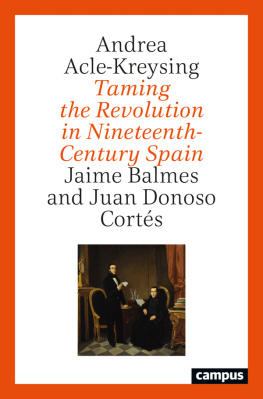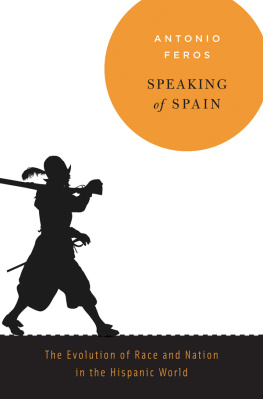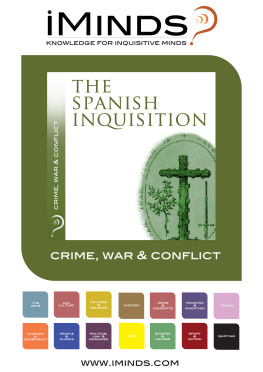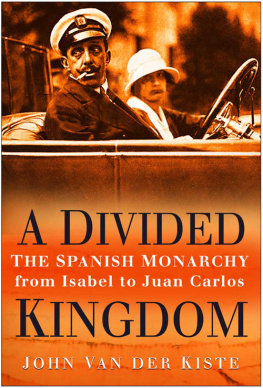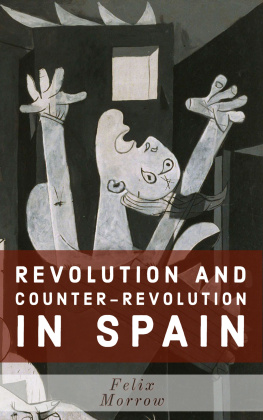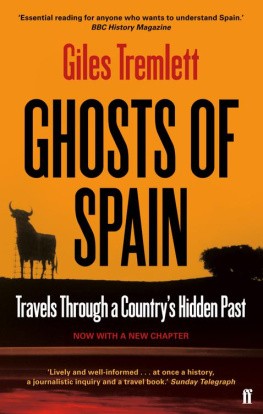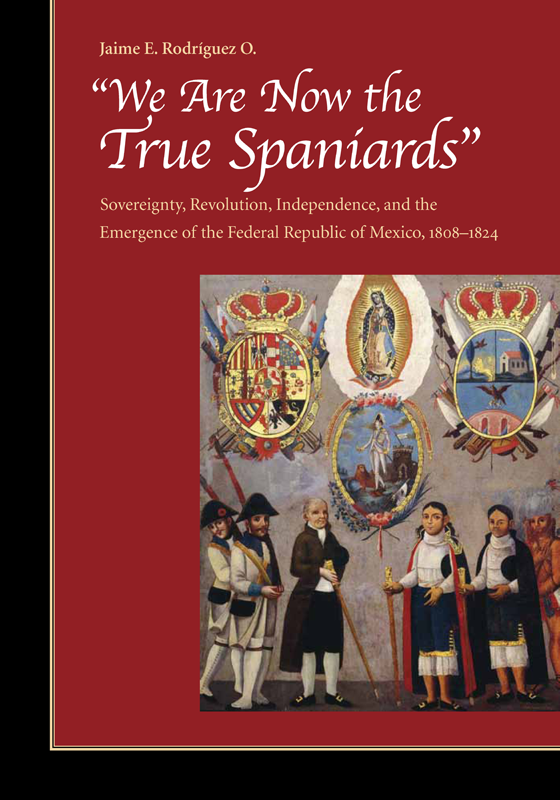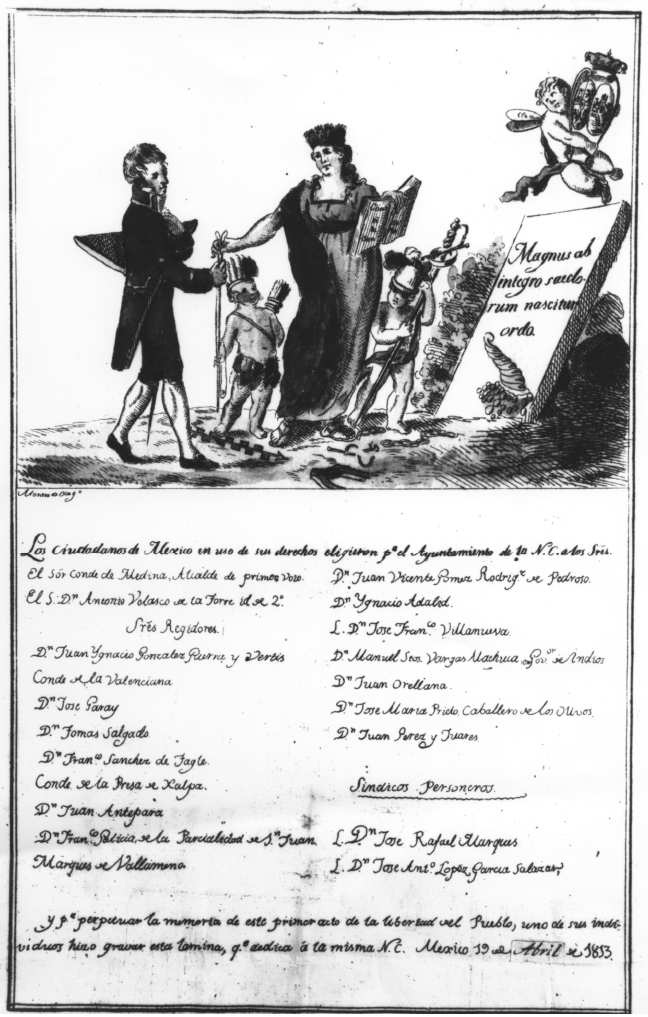
FIGURE 1. The Election of 1813 to the Ayuntamiento of Mexico City. Archivo General de la Nacin de Mxico.
We Are Now the True Spaniards
Sovereignty, Revolution, Independence, and the Emergence of the Federal Republic of Mexico, 18081824
JAIME E. RODRGUEZ O.
Stanford University Press
Stanford, California
Stanford University Press
Stanford, California
2012 by the Board of Trustees of the Leland Stanford Junior University.
All rights reserved.
This book has been published with the assistance of the University of California, Irvine and the Program for Cultural Cooperation between Spains Ministry of Culture and United States Universities.
No part of this book may be reproduced or transmitted in any form or by any means, electronic or mechanical, including photocopying and recording, or in any information storage or retrieval system without the prior written permission of Stanford University Press.
Printed in the United States of America on acid-free, archival-quality paper
Library of Congress Cataloging-in-Publication Data
Rodrguez O., Jaime E., 1940 - author.
We are now the true Spaniards: sovereignty, revolution, independence, and the emergence of the Federal Republic of Mexico, 1808 - 1824 /Jaime E. Rodrguez O.
pages cm
Includes bibliographical references and index.
ISBN -- 8047 - 7830 - (cloth : alk. paper) ISBN 978-0-8047-8463-4
. Mexico--Politics and government-- 1810 - 1821 .. Mexico-History--Wars of Independence, 1810 - 1821 .. Mexico--Politics and government-- 1821 - 1861 . I. Title.
F 1232 .R 6634 2012
'.--dc
2012000734
Typeset by Bruce Lundquist in ./ Bembo
To Linda my best friend
We are now the true Spaniards, the sworn enemies of Napoleon and his lackeys, the legitimate successors of all the rights of the subjugated [Spaniards] who neither won [the war] nor died for Fernando [VII].
El Despertador Americano.
Correo poltico econmico de Guadalaxara (December 20, 1810)
The idea of the independence of one country with respect to another is easily known and appreciated by even the most ignorant of its inhabitants. However, the concept of civil liberty is not as well understood by all. As a result many are deluded by the brilliant idea of independence without bothering to determine if in attaining the latter they ensure the former, without which independence is meaningless. Iturbide has declared independence; we do not yet know the result of his enterprise. I hope that he will not die before a firing squad as have so many heroes who have preceded him.
Jos Miguel Ramos Arizpe, Madrid, June 6, 1821
The United States was not constituted until after the war with Great Britain ended.... And how did they govern themselves in the meantime? With the rules they inherited from their fathers. Even the Constitution which they later promulgated was no more than a collection of those [laws].... And in the meantime with what do we govern ourselves? With the same laws that we have had until now. With the Spanish Constitution, the laws in our code books that have not been derogated, with the decrees of the Spanish Cortes until the year 1820 and those which the [Mexican] Congress has introduced and will continue to enact in accordance to our present system [of government] and our circumstances.
Servando Teresa de Mier, Mexico City, December 11, 1823
Table of Contents
Preface
This volume has a long history. More than forty years ago, in May 1968, I visited Mexico City for the first time to begin research on a doctoral thesis that eventually became my first book, titled The Emergence of Spanish America: Vicente Rocafuerte and Spanish Americanism, 18081832 (Berkeley: University of California Press, 1975). In that volume, I maintained that a great political revolution began in 1808 within the Hispanic world and that Spanish Americans, who had participated in that transformation, initially favored the creation of a constitutional Hispanic commonwealth. But the subsequent failure of the Hispanic Cortes (parliament) (18101814 and 18201823) forced them to seek independence.
Since that time I have been intrigued by the process of nation building and the factors that stimulate or retard state consolidation. My work in this area has focused on the Americas and Spain. I was perplexed by the question of why one former colony, the United States, succeeded in establishing a stable government and a flourishing economy, while other former colonies, the Spanish American countries, endured political chaos and economic decline. During the last four decades, I have focused my research on two regions: Ecuadorthe former Kingdom of Quitoand Mexicothe former Viceroyalty of New Spain. Since the two lands are radically different in size, resources, location, and so on, their comparison allowed me to gain a broader understanding of the impact of regional conditions on their transition from kingdoms of the Spanish Monarchy to independent nations.
In 1986 I began work on a volume on the First Federal Republic of Mexico. But as I examined the secondary literature I became convinced that scholars lacked a genuine understanding of the causes, the process, and the consequences of the movements that led to independence and the formation of the new nation. My opinion was strengthened when the Comit Mexicano de Ciencias Histricas invited me to present a paper on the First Federal Republic for a symposium on Mexican historiography held in Oaxtepec, Morelos, in October of 1988. In the process of preparing that presentation, I realized that because we did not understand the process of independence all of us who work on the early national period are not only confused, but utterly lost in the miasma of the era.
Therefore I returned to the archives of Mexico, Spain, and Ecuador to reexamine the independence period. Also, I began a dialogue with colleagues concerned with similar or related inquiries. Between 1987 and 2008 I organized series of symposia dedicated to various aspects of the question. I have benefited greatly from these in-depth multiyear discussions with colleagues from Mexico, Colombia, Ecuador, Peru, Brazil, the United States, Canada, Spain, France, the United Kingdom, and Italy who took part in those meetings. The papers, which were revised as a result of our discussions, were published in the following volumes: The Independence of Mexico and the Creation of the New Nation (Los Angeles: UCLA Latin American Center, 1989); The Revolutionary Process in Mexico: Essays in Social and Political Change, 18801940 (Los Angeles: UCLA Latin American Center, 1990); Patterns of Contention in Mexican History (Wilmington, DE: Scholarly Resources, 1992); The Evolution of the Mexican Political System (Wilmington, DE: Scholarly Resources, 1993); Mexico in the Age of Democratic Revolutions, 17501850 (Boulder, CO: Lynne Rienner, 1994); The Divine Charter: Constitutionalism and Liberalism in Nineteenth-Century Mexico (Boulder, CO: Rowman & Littlefield, 2005); Revolucin, independencia y las nuevas naciones de Amrica (Madrid: Fundacin Mapfre-Tavera, 2005); and Las nuevas naciones: Espaa y Mxico (Madrid: Fundacin MAPFREInstituto de Cultura, 2008). I am currently preparing to publish the papers from the 2008 symposium titled Hispanic Political Theory and Practice, XVIIX Centuries. The symposia raised more questions than they resolved, but they proved extremely useful in opening new avenues of inquiry. The more I learned, the more I realized that it was crucial to understand the nature of the Spanish Monarchy and its political culture.


